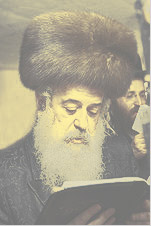

Excerpt from
Fate and Destiny
By Michael Meade
Copyright © 2010
From Chapter 4:
“What Not To Forget” from pages 80 – 83
…An old proverb suggests: “You don’t know who a person is until their last breath has gone out.” In that sense, the last breath can be a revelation as much as a failure, a meaningful statement as much as a dead end. Death is the necessary punctuation for the sentence of each life. Our life includes our death and our death raises questions and sometimes offers answers about our life. Each individual life is a specific question being asked of the world and the answer is not complete until the end of the road is reached. At the end, as in the beginning, it is a question of both life and death; for the last breath brings round the original question of one’s life on earth.
It’s like the story of the old rabbi who lay upon his deathbed as the final hour drew near. His name was Zushya and he had lived a long enough life. He was a holy man who had studied scholarly texts and taught others for many years. He had become widely known and greatly respected. More than that, he was revered and loved by his students for his honesty and for his wit.
Now that his time had come, his faithful students gathered around to share in his final moments. With characteristic honesty, the old teacher told his students the truth of his situation. He explained that with the hour of death approaching he feared having to face God. “I am afraid, “he said, “of God’s final justice. I fear that I will be punished in the world to come.”
 Page 2 | 2
Page 2 | 2
The students were shocked; how could such a thing be possible? Their teacher was an exceptional religious leader who had taught them generously and guided them wisely. Now, the students began to reassure the teacher: “Rabbi you are a pure and righteous man. You have shown the leadership of Abraham, the courage of Jacob, the vision of Moses, and the moral fortitude of the greatest prophets. What do you have to fear in facing God?”
With his final breath Zushya replied to his students, “I am not afraid that God will ask me, ‘Zushya why were you not more like Abraham? Why were you not more like Moses?’ I can answer honestly that I did not have the god-given abilities of Abraham or the talents of Moses. But, if God asks me, ‘Zushya why were you not more like Zushya?’ For that I have no answer at all!” In so saying, Zushya passed into the world that waits beyond this one.
Death, they used to say, is a great teacher and often great teachers will use their own death as a final lesson on life. The final exam turns out to have but a single question and it involves the specifics of life rather than some generalities of religion or philosophy. People go about asking: What is the meaning of life? In believing there is some general answer they miss the fine point. Since each life is specific and cannot help but be so, a better question would be: What is the meaning in my life?
In facing the end openly, it became clear to the old teacher what the divine was interested in all along. While you had the chance to live, did you become your true self? Having received the gift of life, did you learn the nature of your gifts and the purpose of them? Have you lived the life that was given to you or substituted some general model or abstract ideal? If each has but the one life to live, then there will be but one thing in question when the time for living comes to an end…
…Zushya had the gift for teaching and was still using it in the last moment. He turned the attention of the students not to some divinity outside themselves, but toward the seeds of the divine within them…

 Page 2 | 2
Page 2 | 2





